


Egypt nationalizes ancient monastery’s grounds






Egypt nationalizes ancient monastery’s grounds



By Richard Ooga and Edwin Okong’o Mshale
The stacks of libraries across Kenya will soon be a little thicker, thanks to a collaboration between a U.S.-based university and two nonprofit organizations to send 50,000 books to the East African country.
Little Free Library and Books For Africa, two nonprofits based in Minnesota, collaborated with students and faculty at San José State University (SJSU) in California to send children’s books to the Kenyan National Library Service (KNLS), a government agency that runs public libraries. Some of the books from the initiative known as “Soma Safari” (Kiswahili for “Reading Adventure”), will be distributed to free book-sharing boxes known as “little free libraries,” which are led by volunteers.
“I can tell you that Africa needs more books, and you’ll hear more about that from other speakers here,” said Patrick Plonski, the executive director of Books For Africa. “Every day in our office, more requests for more books come in.”
Plonski said that Books For Africa, which sends books to every country in Africa, was on target to ship 3 million books, 457,000 digital books, and in collaboration with Thomson Reuters, 15 law libraries to 37 countries in the continent in 2025. In addition to shipping books from its warehouse in Atlanta, the organization would also ship out of partner warehouses located in London, Paris, Montreal, New York, San Francisco, and Dubai, Plonski said.
Books For Africa will also collaborate with Ethiopian Airlines to ship books to Ethiopia from Seattle this year when Boeing delivers the airline’s new aircraft orders, he said.
“Today is all about Kenya,” Plonski said. “I’m pleased to report that Kenya is the number one country served by Books For Africa in our 37-year history, [with] 7 million books shipped.”
Plonski said Kenya had been the leading country in the number of books sent to Africa in the last three years, with more than 370,000 shipped last year. He said Kenya was going to be number one again in 2025. Plonski was quick to point out that it was not his or the board’s decision to make Kenya the top destination for books. He attributed it to the ability of Kenyans, both here in the United States and back home, to mobilize book donations.
“Some of you representing other countries, you also can push your country to the top,” he said.
Students and faculty at the SJSU School of Information helped organize the shipment of the 50,000 books going to Kenya. They also raised money and coordinated with the KNLS to organize the distribution of the books.
“The Soma Safari project exemplifies our mission to promote global literacy and equitable access to information—helping build stronger communities, one book at a time,” said Dr. Anthony

“You a monkey!” That’s what an Indiana fan yelled at Angel Reese as she stepped to the freethrow line at Gainbridge Fieldhouse in Indianapolis, IN, on Saturday—allegedly. And the league still hasn’t done a damn thing.
When Angel Reese and Caitlin Clark entered the league last season, everything changed.
More people started watching women’s basketball. Viewership went up. But so did the hate— racist fans, nasty comments online, and an atmosphere that’s gotten hostile, especially toward Black players.
There should be zero tolerance for racism in this league. Period. Instead, the WNBA is willing to look the other way as long as ticket sales keep climbing. No one in charge seems worried about what these players are going through mentally or physically. That has to change, and it starts at the top.
During that Chicago Sky and Indiana Fever game, fans made monkey noises while Reese was at the free-throw line. One fan shouted, “You a monkey!” at her. After Clark’s technical foul on Reese, Fever fans kept at it. I’ve watched the footage. This behavior is flat-out unacceptable, and the league needs to step up—in a real way.
Let me be straight about WNBA Commissioner, Cathy Engelbert. Yes, she’s helped the league grow, but she’s failing these players now. The league has outgrown her. She needs to go. That might be the first real step toward fixing this mess.
These players deserve protection. I’ve been watching the WNBA since day one, and I’ve never seen this level of hatred, especially when Reese and Clark play against each other. The Sky and Fever will meet five more times this season. If nothing changes, this gets worse. Someone could get hurt.
The solution isn’t complicated. Fine or suspend teams when these incidents happen. Make organizations tighten up their security and crowd control. If the fan base cannot behave, then the team should consider playing without any fans present. Drastic? Maybe. But player safety comes first.
I’ve loved this league from the beginning. I held season tickets for the Atlanta Dream from their first game. Back then, the arenas were packed with respectful fans, and players felt safe. That feeling is gone now.
This isn’t the league I fell in love with. It’s become a place that doesn’t protect its Black players. It ignores the concerns raised by fans, players, and reporters when they speak up.
Players and reporters have been talking about how toxic it gets in Indiana. Last September, the WNBA said, “The WNBA is a competitive league with some of the most elite athletes in the world,” read the statement. “While we welcome a growing fan base, the WNBA will not
tolerate racist, derogatory, or threatening comments made about players, teams and anyone affiliated with the league. League security is actively monitoring threat-related activity and will work directly with teams and arenas to take appropriate measures, to include involving law enforcement as necessary.”
The WNBA recently released a statement saying this:
“The WNBPA is aware of reports of hateful comments at yesterday’s game in Indianapolis and supports the WNBA’s current investigation into this matter,” the Women’s National Basketball Players Association shared in a statement. “Such behavior is unacceptable in our sport. Under the WNBA’s ‘No Space for Hate’ policy, we trust the league to thoroughly investigate and take swift, appropriate action to ensure a safe and welcoming environment for all.”
I don’t trust them to “thoroughly investigate” anything. They should have been ready for such an event a long time ago. So I’m talking directly to you, the fans. We have to be the change ourselves.
If you’re at a game this season, do this:
• If someone says something racist or inappropriate, try to record it and tell security right away
• If you see a player or fan being mistreated, find security
• After the game, email the home team about what happened
• Then, email the WNBA with the same details. Copy a reporter if you can
We need real documentation, not just tweets. Accountability starts with proof.
Your voice matters. What you see and hear at games matters.
The league knows this. Its “No Space for Hate” campaign is just empty words if they don’t back it up.
So speak up. Report what you see. Record it if you can. Tell the team, tell the league, and tell the media.
Change won’t happen on its own, but we can push for it.
This league has always been about fighting through adversity. But when players have to be resilient without protection, that’s not inspiration—that’s exploitation.
If the WNBA won’t protect its players, it doesn’t deserve its fans.
Protect the players. Believe them. Have their backs.
Dawn Montgomery is a culture critic and wrote this for the Black Press USA.

By David Yusufu Kibingila and Monika Pronzcuk Associated Press
Nestled in the green hills of Masisi territory in Congo, the artisanal Rubaya mining site hums with the sound of generators, as hundreds of men labor by hand to extract coltan, a key mineral crucial for producing modern electronics and defense technology — and fiercely sought after worldwide.
Rubaya lies in the heart of eastern Congo, a mineral-rich part of the Central African nation which for decades has been ripped apart by violence from government forces and different armed groups, including the Rwanda-backed M23, whose recent resurgence has escalated the conflict, worsening an already acute humanitarian crisis.
As the U.S. spearheads peace talks between Congo and Rwanda, Congo’s President Felix Tshisekedi has sought out a deal with the Trump administration, offering mineral access in return for American support in quelling the insurgency and boosting security.
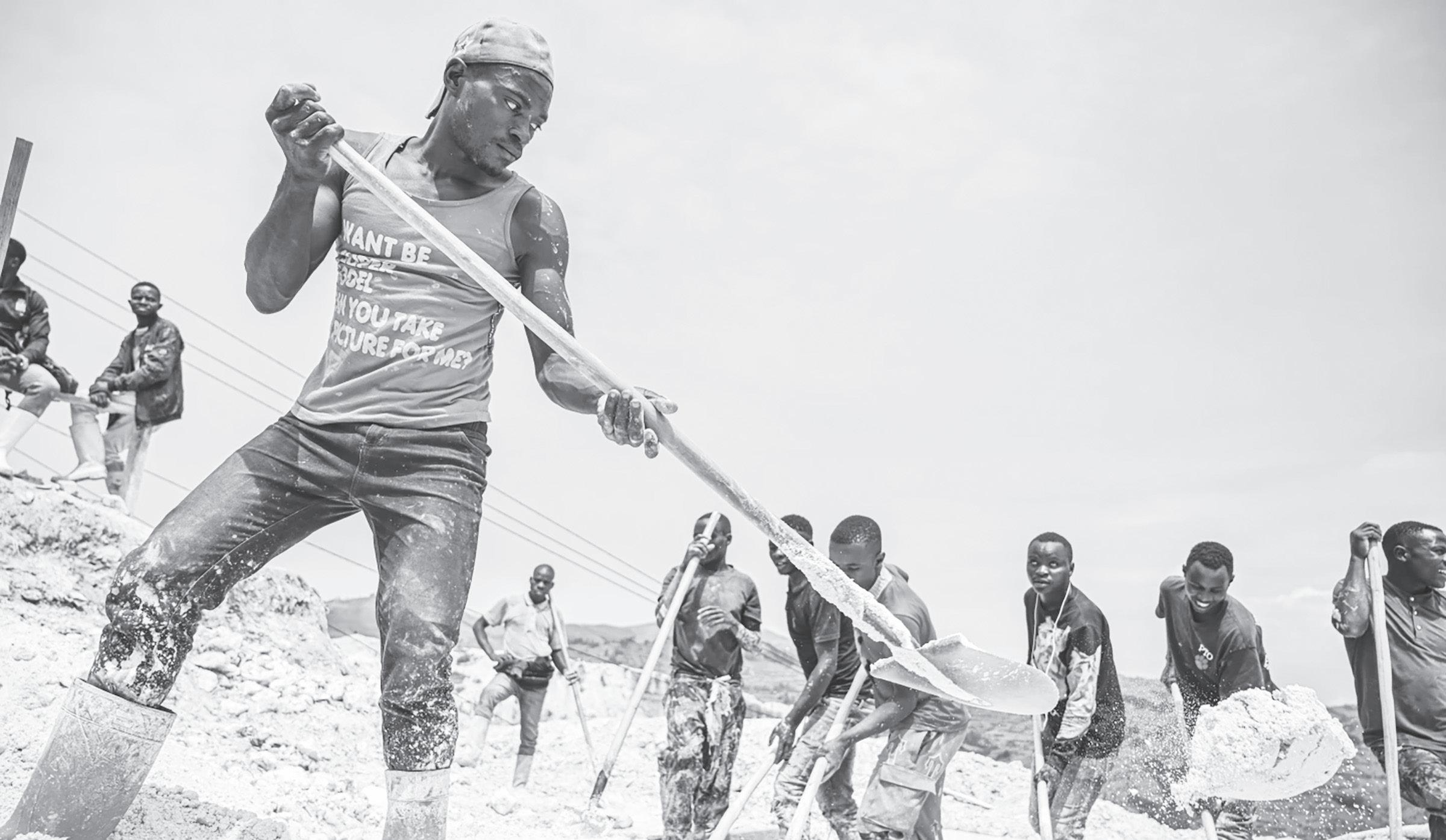
While details of the deal remain unclear, analysts said Rubaya might be one of the mining sites which fall under its scope.
Eastern Congo has been in and out of crisis for decades. The conflict has created one of the world’s largest humanitarian crises with more than 7 million people displaced, including 100,000 who fled homes this year.
The Rubaya mines have been at the center of the fighting, changing hands between the Congolese government and rebel groups. For over a year now, it has been controlled by the M23 rebels, who earlier this year advanced and seized the strategic city of Goma and Bukavu in a major escalation of the conflict.
Despite the country’s exceptional mineral wealth, over 70% of Congolese live on less than $2.15 a day.
Metals for ‘modern life and military

By Edwin Okong’o Mshale
NgŨgĨ wa Thiong’o, one of the most renowned icons of African literature, has died, according announcements from his children. He was 87.
“It tears my heart to say that my father, Ngugi wa Thiong’o, passed away earlier today,” his son, Mukoma wa Ngugi announced on Facebook on Wednesday. “I am me because of him in so many ways, as his child, scholar and writer. I love him – I am not sure what tomorrow will bring without him here. I think that’s all I have to say for now.”
NgŨgĨ was born in 1938 in Limuru in the central region of present-day Kenya, which at the time was a British colony. His experience growing up under European colonial would later shape his career as a writer and storyteller. In 1959, Ngugi left Kenya for Uganda and enrolled at Makerere University, which at the time was one of Africa’s most esteemed universities. It was the beginning of an illustrious career that spanned more than 60 years and led to numerous nominations for the Nobel Prize in Literature, though he never worn the prestigious award.
In 1964, NgŨgĨ published his first novel, “Weep Not, Child,” the first major English-language book writ-
For the men working in the Rubaya’s mines, who rely on the mining for their livelihoods, little has changed over decades of violence.
One of them is Jean Baptiste Bigirimana, who has worked in the mines for seven years.
“I earn $40 a month, but that’s not enough,” he said. “Children need clothes, education and food. When I divide up the money to see how I will take care of my children, I realize it’s not enough,” he said, adding that he doesn’t know where the minerals he mines go once they leave Rubaya.
The mines produce coltan — short for columbite-tantalite — an ore from which the metals tantalum and niobium are extracted. Both are considered critical raw materials by the United States, the European Union, China and Japan. Tantalum is used in mobile phones, computers and automotive electronics, as well as in aircraft engines, missile components and GPS systems. Niobium is used in pipelines, rockets and jet engines.
Congo produced about 40% of the world’s coltan in 2023, according to the U.S. Geological Survey, with Australia, Canada and Brazil being other major suppliers.
The National Energy Emergency execu-

ten by a Black East African author. In 1977, NgŨgĨ dropped English for his native Gĩkũyũ as his primary language of writing. He became an unapologetic advocate of African languages. Every one of the numerous novels and
tive order, issued by Trump, highlighted the significance of critical minerals — including tantalum and niobium — and called for securing U.S. access to ensure both “modern life and military preparedness.”
A ‘murky’ global supply chain
According to a U.N. report, since seizing Rubaya in April last year, the M23 has imposed taxes on the monthly trade and transport of 120 tonnes of coltan, generating at least $800,000 a month. The coltan then is exported to Rwanda, U.N. experts said. But even before M23 seized control of the mine, analysts said that the mineral was sold to Rwanda, the only difference being it was done through Congolese intermediaries.
Experts say that it is not easy to trace how coltan arrives in Western countries.
“The global coltan supply chain is pretty murky,” said Guillaume de Brier, a natural resources researcher at the Antwerpbased International Peace Information Service. “From eastern DRC, coltan is bought by traders, mostly Lebanese or Chinese, who will sell it to exporters based in Rwanda. Exporters will then ship it to the UAE or China, where it will be refined into tantalum and niobium, and sold to Western countries as metals from UAE or China.”
The M23 has previously controlled Rubaya for periods of time, and the U.N. asserted that, even before the takeover of Goma, the group was facilitating the smuggling of these minerals to Rwanda.
dent Kenya,NgŨgĨ found himself on a collision course with the government of Jomo Kenyatta, the country’s first post-independence president. Kenyatta jailed him for a year for writing books and plays that portrayed leaders in the new government as traitors of the Mau Mau heroes who fought to end British imperial rule.
After Kenyatta’s death in 1978, his successor, President Daniel arap Moi, released NgŨgĨ from jail. A few years later, however, Ngugi went into selfexile in the United Kingdom claiming that his life was in danger. He later ended up in the United States and did not return home until 22 years later when Moi was no longer in power.
In the United States, NgŨgĨ taught at various universities including Yale, New York University and the University of California, Irvine.
The family did not disclose the cause of his death but in the last few years NgŨgĨ has had multiple health issues. In 2019, he underwent triple heart bypass surgery. He also had a history of kidney failure, and was a prostate cancer survivor, having been diagnosed and treated in 1995.
memoirs he wrote after that were first written in his native tongue then translated into English before publication. As his literary works moved from being critical of European colonialism to attacking the rulers of newly indepen-
Since M23 took control of the mine, Rwanda’s official coltan exports have doubled, according to Rwandan official figures.
At times the mines were also under control of the Wazalendo, a militia allied with the Congolese army.
Alexis Twagira said he feels some things have improved under M23. “I’ve been working in this mine for 13 years, and
“He lived a full life, fought a good fight,” his daughter, Wanjiku Wa Ngugi, wrote on Facebook after his death.
The U.N. has accused both the Congolese army and the M23 rebels of human rights abuses.
‘We can’t continue like this’
Congo is the world’s largest producer of cobalt, a mineral used to make lithium-ion batteries for electric vehicles and other products, but U.S. access is complicated by the fact that Chinese companies control 80% of its Congolese
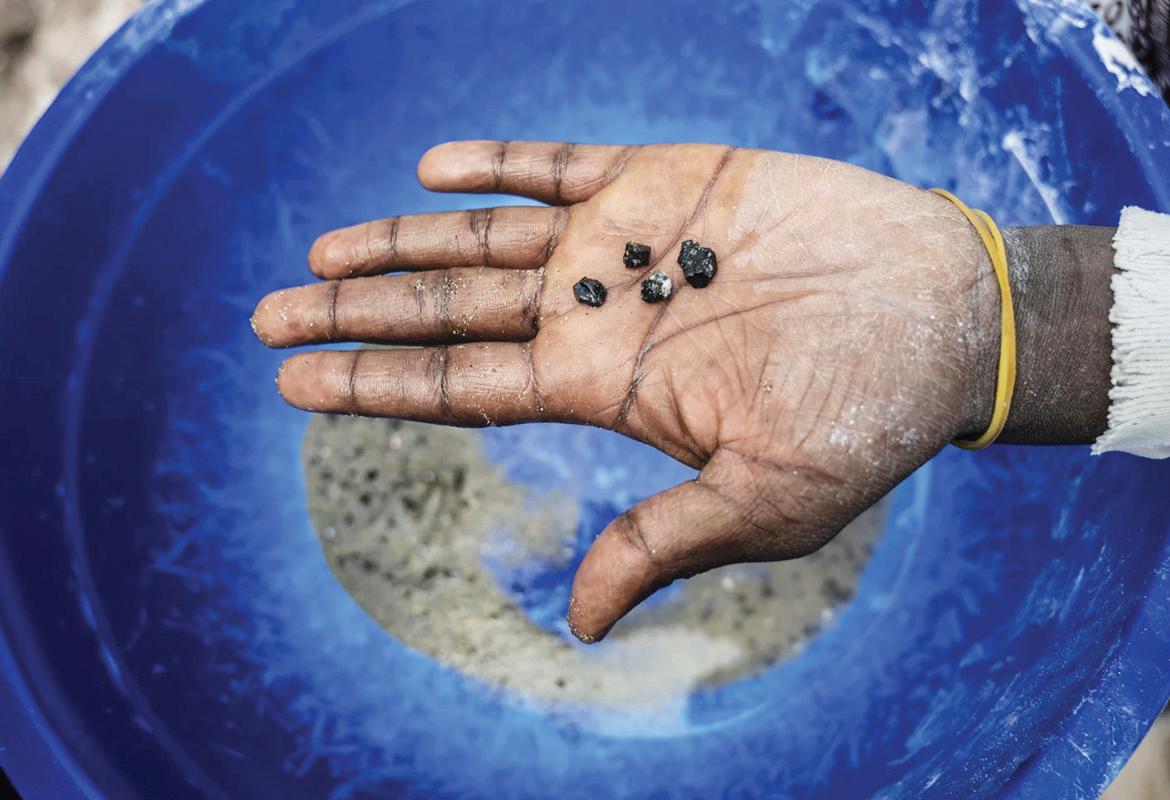
I’ve worked under the Wazalendo. When they were here, they would harass us, sometimes taking our minerals and demanding money,” he said.
production. Congo also produces gold.
In recent weeks, two U.S. companies
By Stacy M. Brown Black Press USA`
Harvard University will relinquish ownership of the earliest known photographs of enslaved people as part of a historic legal settlement announced Wednesday, May 28 by nationally renowned civil rights attorney Ben Crump. The agreement resolves a 2019 lawsuit filed by Tamara Lanier, the great-great-greatgranddaughter of an enslaved man known as “Papa Renty,” whose image, along with that of his daughter Delia and five others, was captured in 1850 to support racist scientific theories promoted by a Harvard professor.
The 19th-century daguerreotypes, long held by Harvard’s Peabody Museum of Archaeology and Ethnology, were commissioned by Swiss-born biologist Louis Agassiz, a Harvard professor who used the images in a campaign to promote polygenism—the debunked and deeply racist theory that different races have separate origins and that Africans and African Americans are inferior to whites. The photographs were taken in South Carolina, where Renty and Delia were stripped and posed under duress.
“This is a day of reckoning 175 years in the making,” said Josh Koskoff, cocounsel on the case. “This is not just an
Books
Cont’d from Pg. 1
Chow, the director of SJSU School of Information.
Books For Africa had collected the books and was helping to organize the shipment, Plonski said. Thomson Reuters, which sponsored the event in Roseville, also provided funds for the shipment and donated one reference law library.
The event was attended by Minnesota Attorney General Keith Ellison, several government officials and elected leaders
unlikely personal victory for the Lanier family; it is also a win for the importance of truth and the power of history at a time when both values are under unprecedented assault.” As part of the settlement, Harvard has agreed to fully relinquish the images to Lanier, who is advocating for their permanent display at the International African American Museum in Charleston, South Carolina— the same state where the pictures were initially taken.
A confidential financial agreement was also reached. “Since Black Americans were first brought to this country in chains, our pain and trauma have been exploited for capitalistic gain,” said Lanier. “Harvard played a role in the darkest chapter in American history. This is a small step in the right direction towards fully acknowledging that history and working to rectify it.”
The lawsuit accused Harvard of wrongfully seizing and profiting from the images, charging licensing fees for their use in books and promotional materials, and publicly dismissing Lanier’s well-documented genealogical claims. The Massachusetts Supreme Court ruled in her favor in 2022, stating that “Harvard’s present obligations cannot be divorced from its past abuses.” “Papa Renty was taken from his descendants and used to promote a lie – but today, he has finally
from the African immigrant community, including Huldah Momanyi Hiltsley, a member of Minnesota House of Representatives, who is originally from Kenya. Ellison said there were numerous ways people could engage in charitable work, but donating books was “a righteous good.”
“What could be better than giving people tools for their own liberation, for their own strength?” Ellison asked. “It might make you feel good to give somebody something, but to give somebody something that’s going to actually help them help themselves and create their own lives, well, that’s a book. That’s knowledge. That’s information, and it’s
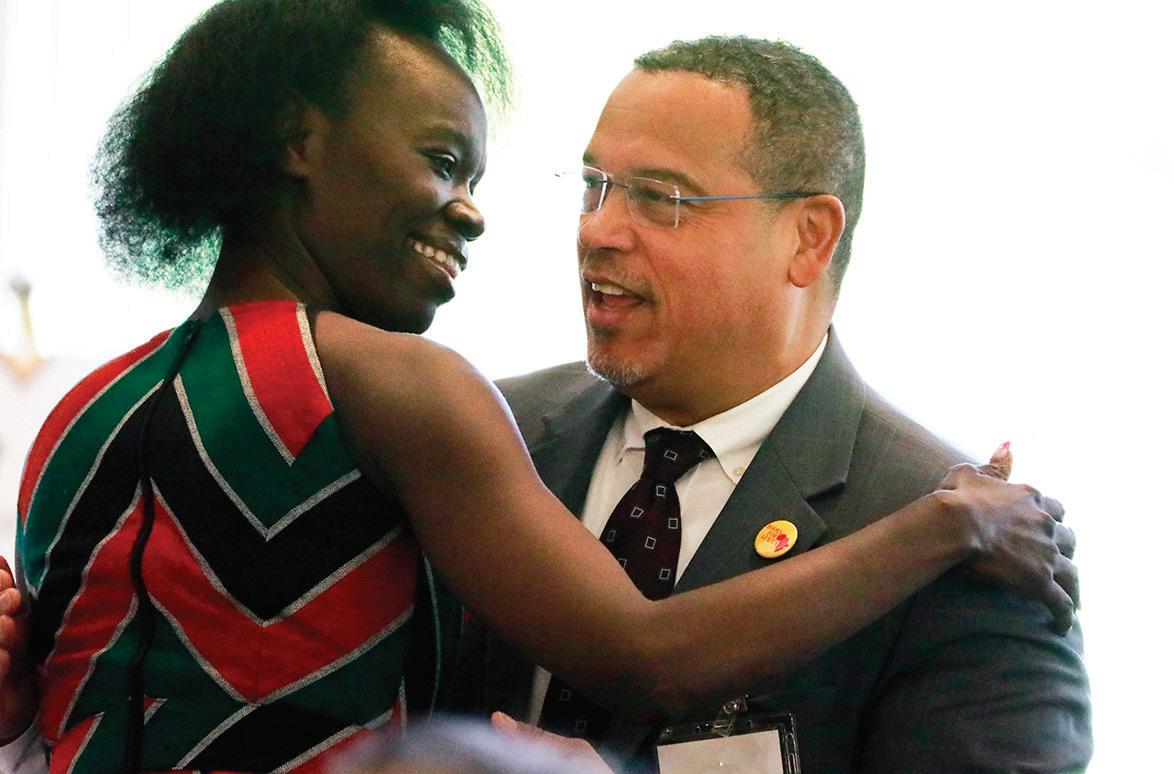
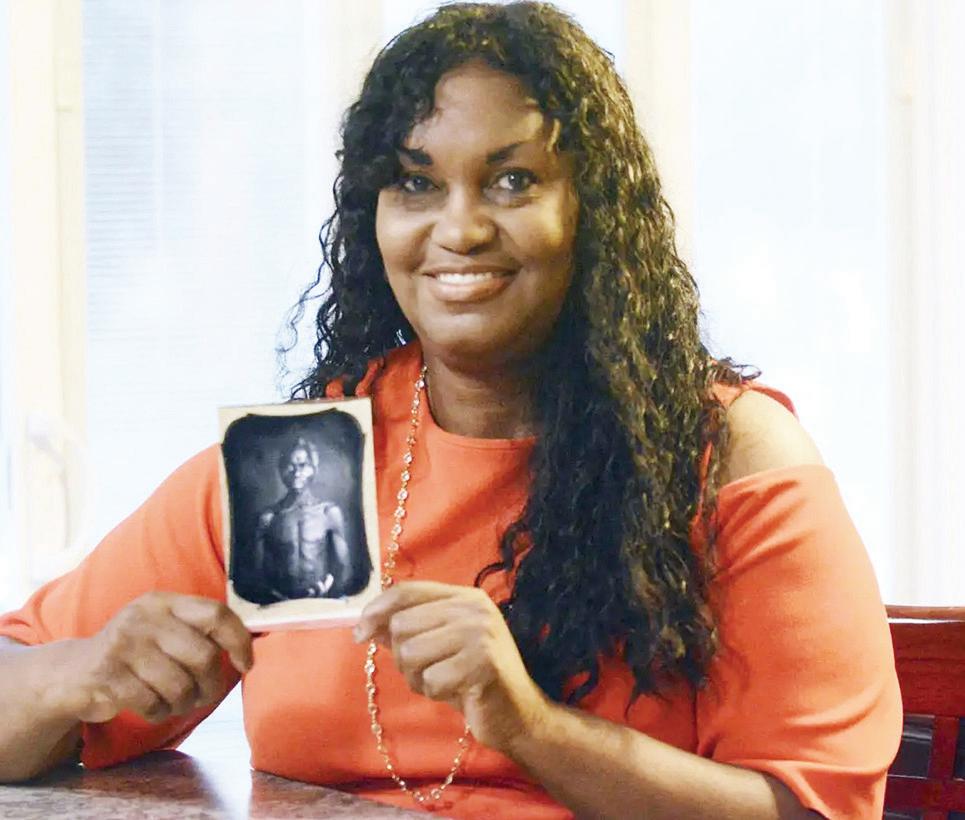
been returned to the love and care of his family,” said Crump.
“This historic settlement is a step forward in the pursuit of justice and a recognition of the pain caused by the dark
history of exploiting enslaved people.” “They will be returning to their home state where this all began, and they will be placed in an institution that can celebrate their humanity,” Lanier said.
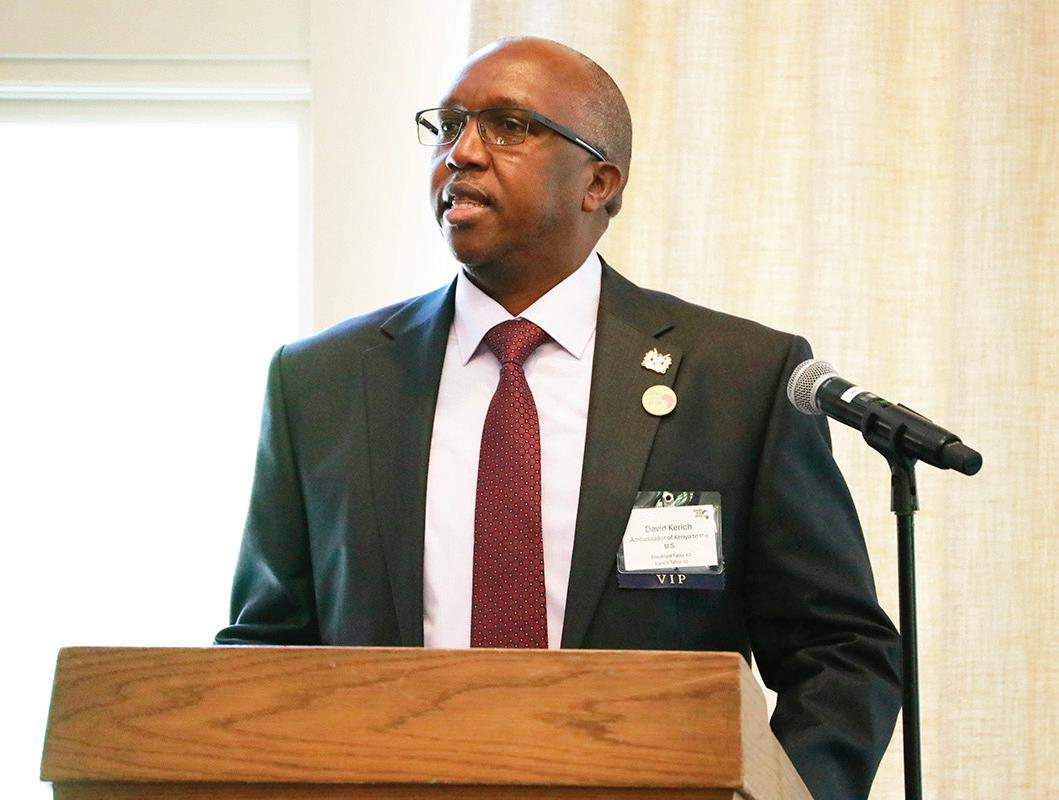
righteous.”
Ellison said that he had been a longtime partner of Books For Africa. He remembered flying to Nairobi with the organization and travelling for several hours by road to deliver books.
“When those books arrive, those very smart, those brilliant young minds, hungry for information gobble those books up,” he said. “They need more books now, you know, because they’ve read all the old ones. They’re so smart, and they’re so eager and all they need is opportunity and somebody who cares, and that’s us.”
Kenya’s Ambassador to the United States David Kerich said there were already six containers of books enroute to Kenya. He promised that the government would do everything possible to ensure that Kenya remained the top destination of books donated through Books For Africa. The government would do so by streamlining and speeding up the process of receiving shipments so that the donated books arrive to those they were intended for in a timely manner. “So, my other brothers from other countries, you guys will have to wait for a while,” he joked. “Kenya will continue to be number one.”
By Maureen Samms-Vaughan BlackPress USA
It’s more important for us to focus on what children can do, and their abilities, rather than their disability. We can use children’s abilities to assist the areas that they have most challenges with right now.
As a parent, what can I do to support my child with a disability? Why is it important to focus on a child’s abilities?
Every child with a disability has strengths. These may be in doing artwork, in their personality, or in their motor skills. Every child has strength. It’s more important for us to focus on what children can do, and their abilities, rather than their disability. We can use children’s abilities to assist the areas that they have most challenges with right now.
How can I communicate with my child with a disability and how do I know when he/she wants to communicate with me?

Some children with disabilities will be able to speak with you. Others will not be able to speak. But they do communicate, even though they don’t speak. For example, when a newborn baby comes into a family that baby communicates without speaking. You learn the baby’s likes and dislikes by whether they smile, laugh, or whether they cry. The same occurs with children with disabilities who can’t speak. They tell you what they like by smiling or laughing, and they tell you what they don’t like by crying or making an upset face. What can I do in my day-to-day to make sure I’m stimulating my child and his/her brain development?
Children are stimulated by everything in their environment: by the sounds, by the interactions, by your smile. So, if your child with a disability is around you, you should make sure that you spend time

Cont’d from Pg. 7
talking with them, explaining in simple language what it is you’re doing, smiling with them, telling them all about their environment, making noises around them so they can respond to noises. Everything that you do, as you are moving about the house, as you are doing your housework, involve and include your child in it. Move your child into the room in which you are working. Tell them what you are doing: you are washing the dishes, you’re dipping the dishes in the water. Tell them exactly what you are doing. All of that will stimulate them. You can also stimulate them by directly playing with them, by making little toys in the home, putting stones in a bottle and shaking it, by waving ribbons in front of their eyes, different colored ribbons. There are many things that you can do with just things around your house.
Cont’d from Pg. 5
opened doors to production in the region. Nathan Trotter, a U.S. firm, signed a letter of intent with Rwanda-based Trinity Metals, which owns Rwanda’s largest tin mine. And KoBold Metals, which uses Artificial Intelligence to further energy transition and is backed by billionaire Bill Gates, brokered a deal to buy Australia’s AVZ Minerals’ interest in Congo’s Manono lithium deposits.
Analysts warn that the implementation of a minerals deal in eastern Congo, if
Can I breastfeed my child if he/she has a disability?
Breastfeeding is important for all children but is especially important for children with disabilities. Breastfeeding is important for children’s growth, nutrition, and brain development. Many children with disabilities can breastfeed, but only a few are not able to breastfeed. And those who can’t and can be fed expressed breastmilk, because breastmilk is the best.
Why are the early years of every child’s life so critical?
The early years of every child, whether they have a disability or not, are critical because when we stimulate the brain during these early years we are ensuring that the brain develops to its full potential. We are making sure that children have the best development that they can have and this happens for children with disabilities and children without disabili-
one was to materialize, will face many hurdles — especially with U.S. investors largely abandoning Congo in the last two decades.
“Turning a headline announcement into sustainable progress will require resolving deep suspicions between Rwanda and the DRC,” Chatham House, a research institute, said in a recent report. “A deal will also need to account for complex local political problems of land access and identity, wider security challenges in a region that hosts myriad non-state armed groups, and issues of asset scarcity.”
ties.
How do I play with my child with a disability?
Children with disabilities enjoy being played with just like any other child. They enjoy you reading to them, showing them pictures, tickling them, hugging them, cuddling them. They respond to you with laughter and smiles. If they don’t like a particular play that you are doing, they will tell you. They will stop laughing, they’ll stop smiling. Try something else. You will find something because you know them best.
If I don’t have time to play or money to afford toys, what can I do?
If you don’t have a lot of time to play with your child, there may be other family members in your home who will be able to play with your child with a disability. Brothers and sisters are great around children with disabilities.
If the deal were to include Rubaya, where all mining is currently done manually, U.S. companies would have to contend with both security concerns and a severe lack of infrastructure.
“With coltan, you’re dealing with hundreds of thousands of miners, and not just M23, but other so-called autodefense armed groups and individuals who rely on mining for survival,” said de Brier from the International Peace Information Service. “You have to build all the infrastructure, you have to start from scratch. You will even have to build the roads.”
They stimulate them because they talk to them a lot and they play with them. They don’t seem to be concerned about whether a sibling has a disability. They play with them just like anyone else.
What is your advice to parents who suspect that their child has a disability?
If you have a concern that your child has a disability, go to your nearest health provider and let them know your concerns. Some concerns may turn out not to be a problem at all, but some may, and your child may be identified as having a disability. It’s just as important to provide children with disabilities with a loving environment. Children who are shown warmth and love grow up to be loving, warm people. A child with a disability who is shown warmth and love will grow up to be an adult who may have a disability, but who is a wonderful person to be around.
Bahati Moïse, a trader who resells coltan from Rubaya’s mines, hopes that, regardless who controls the mines, the workers who labor to extract the minerals will finally be valued as much as the resources themselves.
“The whole country, the whole world knows that phones are made from the coltan mined here, but look at the life we live,” he said. “We can’t continue like this.”
Pronczuk reported from Dakar, Senegal.

Initial reports that the centuries-old St. Catherine’s Monastery would be closed were denied, but Orthodox leaders remain concerned that the monastery’s new status will interfere with the monks’ lives.
By David I. Klein Religion News Service
ISTANBUL (RNS) — As news filtered out of Egypt on Thursday (May 29) that a court ruling had called for nationalizing an ancient Orthodox Christian Monastery in the Sinai Desert and the eviction of its monks to make way for a museum, disbelief turned to outrage, from the Middle East to Greece, where politicians blasted the decision.
St. Catherine’s Monastery, which is inhabited by Greek Orthodox monks in Egypt, is considered to be the world’s oldest continuously operating Christian monastery. Established in the 6th century by order of Byzantine emperor Justinian I, St. Catherine’s lies at the foot of the mountain Christians identify as the biblical Mount Sinai and hosts a vast library that harbors priceless manuscripts and icons.
The monastery, whose right to function undisturbed is said to have been granted by the Prophet Muhammed, is a symbol of interfaith tolerance and Christian longevity in the Muslim world.
Egypt’s presidency has denied reports
and All Greece called the news “an act of violent infringement upon human and religious rights,” saying that “this spiritual lighthouse of Orthodoxy and Hellenism now faces a struggle for actual survival.”
The archbishop added, “I categorically condemn any attempt to alter the status that has prevailed in the region for 15 centuries and appeal to the Greek government and Prime Minister Mitsotakis to act decisively to restore legal order and prevent the abolition of the monastery.”
Greece’s foreign minister quickly demanded clarification from Egypt, noting that Egyptian President Abdel Fatah el-Sisi and Prime Minister of Greece Kyriakos Mitsotakis had discussed the status of the monastery during Sisi’s visit to Athens earlier in May.
“The Greek Prime Minister remains committed to the assurances he received,” said Pavlos Marinakis, a spokesperson for the Greek government. “We do not expect any deviation from the agreed terms.”
On Friday morning, Egypt’s presidential spokesperson said Sisi and Mitsotakis had spoken by phone on Friday morning.

that the court ordered the monastery to be shuttered, noting that the ruling confirms the right of the monks to perform their religious duties at the monastery while also declaring its lands are now the property of the Egyptian state.
But the clarification came only after a flurry of statements from Christian leaders and Greek politicians.
Archbishop Ieronymos II of Athens
“The call stressed Egypt’s unwavering commitment to preserving the unique and sacred religious status of St. Catherine’s Monastery, ensuring this status remains untouched,” the Egyptian presidency said in a statement.
Nonetheless, a Greek state delegation is set to travel to Egypt on Monday to clarify the matter, Greek media reported.

Though the initial shock has largely been assuaged by the statements of Egyptian authorities, which confirmed there will be no evictions of the monks, the nationalization of St. Catherine’s lands is a major upheaval for a site whose legal ownership had never been clarified under modern Egyptian law. “What exists are scattered documents, gold bulls, decisions, correspondence, etc.,” Greek journalist Andreas Loudaros wrote in a commentary on the situation.
“The monks, who have been owners of the monastery since the 5th century, become guests in their home,” Archimandrite Porphyrios Fragkakos, the monastery’s spokesman, said on Greek TV Thursday. “All the monks will be able to do is operate, the rest belongs to the archaeological service.”
While the monastery’s vague legal status had been simply ignored for much of modern Egyptian history, it became a matter of debate again during the brief rule of the Muslim brotherhood over Egypt following the Arab Spring in 2012.
Sisi’s secularist government, which ousted and outlawed the brotherhood in 2014, has increasingly asserted its control over religious institutions in Egypt, both Muslim and Christian. In 2015 and later in 2021, local officials had brought the matter of the monastery’s ownership into the Egyptian courts, attempting to gain control over its lands.
That prompted the Greek government to negotiate an out-of-court solution directly with the Egyptian government, something many in Greece felt had been finalized by December and only lacked final signatures. The current ruling dynamites that agreement.
According to the monastery’s legal representative, Christos Kompiliris, the
gardens around which the monks live were excluded from the ruling, but the surrounding agricultural lands that had for centuries sustained the monastery have all been transferred to the state.
“In other words, the monastery will be left essentially without property,” Kompiliris told Greek media.
Orthodox leaders beyond Egypt and Greece remain concerned that the monastery property’s changed status will interfere with the monks’ prayer and work. “The recent judicial actions which threaten to confiscate the monastery’s property and disrupt its spiritual mission are deeply troubling,” said Greek Orthodox Archbishop of America Elpidophoros.
“Such measures not only violate religious freedoms but also endanger a site of immense historical and cultural importance. It is imperative that the Egyptian government honors its previous commitments to protect the monastery’s autonomy and heritage,” the archbishop said.
In a statement on Friday, Ecumenical Patriarch of Constantinople Bartholomew I, first among equals among Eastern Orthodox patriarchs, appealed to Egypt to “find the appropriate way to maintain the status quo of the Holy Monastery, which has been particularly respected and has been preferentially secured for centuries by Islam, and to implement its recent agreement with the Monastery.”
In his own statement, the Greek Orthodox Patriarchate of Jerusalem, under whose jurisdiction the monastery falls, said on Friday, “We call on the Egyptian Authorities to follow this most esteemed tradition and ensure the freedom of worship and access to our monastery. Let our monastery continue this embodiment of peaceful Christian witness, education, and welcome.”
By Morgan Greenstreet Afropop
The excitement and anticipation was palpable as the seats began to fill in the historic Kings Theater on Flatbush Ave on Sunday, April 27th, 2025. When hype-man and percussionist Mbaye Dieye Faye led the twelve-piece band onstage, the capacity crowd jumped to our feet to welcome the legend himself: Youssou N’Dour strode out in a glistening white and blue kaftan, arms raised in his signature salute. The crowd poured into the aisles, phones held aloft in an attempt to capture, if it were possible, the magical tension and joy in the room.
From the first notes out of N’Dour’s mouth, we were enthralled by his calm, emphatic presence. But more than anything, we were moved by the power of his voice, slightly deepened over the course of his fifty-year career. Still, his highest notes soared and kissed the gilded rafters of the beautiful theater, while his gentler moments brought the band to a simmer and the audience to a momentary hush.
The Senegalese diaspora members of the audience lifted and amplified the songs, singing along to every word of the verses and choruses, leaving those of us who didn’t know the words wishing that we too could join the cathartic choir, or at least film ourselves looking cute and singing along.
After the opening song “Lima Wessu” and the rousing anthem “Merci Enseignants,” the band launched into “Jaam” which featured the percussion section of Mbaye Dieye Faye on congas, El Hadj Faye and Thio Mbaye behind the row of sabar drums and Assane Thiam up front on the tama “talking drum.” When Thiam took a solo, N’Dour brought his mic to the drum and stood behind him, his face a mask of seriousness as the drummer delivered near-impossible rhythmic runs.
Mbalax as a genre always has an underlying current of hype, a quickening whispered pulse of percussive potential, so that even a song that begins as the most mellow ballad (such as N’Dour’s

“I Love You”) can suddenly erupt into a thrilling dance rhythm with the crack of a sabar or purr of the tama. The four percussionists brought the energy of the music into overdrive, followed by a cool-down song “Yeksil” from N’dour’s latest album Éclairer le monde (Light The World), produced by Michael League (of Snarky Puppy/Bokanté) with djembe master Weedie Braimah.
“When preparing for this tour, we realized that we have over 400 songs,” N’dour told the audience. Given that he began performing and recording at age sixteen, first with Star Band and then fronting Étoile de Dakar, this number could even be an under-estimate.
The crowd was predominantly composed of members of the Senegalese diaspora dressed in their finest, from suits and gowns and traditional wear from among those of a certain age, to gold chains and shades or even corsets and glam from the Tik-Tok stars two rows in front of us. There was certainly a scattering of non-Senegalese fans as well, hanging on from N’Dour’s days on the World Music circuits alongside Peter Gabriel, Sting and the like. It’s worth noting that the show was presented by
World Music Institute, which did a great job bringing these audiences together under one roof.
Youssou N’Dour has had a foot in both worlds since early in his career and he seems very comfortable in this position. Unlike some artists who make the jump into the international circuit, his popularity among Senegalese audiences has not decreased with his worldwide reach, partly because he continues to release music specifically for the Senegalese market. For example, just a few months before his latest international album Éclairer le Monde he released three singles of pure contemporary mbalax, for example “Insistéel” or “Tawféex” which made the setlist at Kings Theater. Before this year’s album, his most recent album, entitled Mbalax was a huge success in Senegal (while, it should be noted, it was not marketed at all internationally) especially “Waññi Ko.”
At Kings Theater, N’Dour sang his biggest international hits, including “7 Seconds,” and “Birima” but he also sang some back-home favorites, including “Bukki yi” and “Telepathie.” During “Senegal Rekk” the dancer Moussa Sonko
flew onstage bearing a Senegalese flag: he whipped it around his head as his arms and legs flew, with a cheeky grin and laughing eyes as if daring the crowd to follow his movements if they could. He then posed behind N’Dour as the singer projected his love for his homeland with a fervor that reverberated through the crowd.
At one point in the evening, N’Dour paid tribute to his longtime guitarist/ collaborator in Étoile de Dakar Jimi Mbaye who passed away in February. The young Moustapha “Tapha” Gaye opened the song with a guitar solo, executing the style Mbaye had pioneered, muting and striking the strings to produce the effect of a kora or xalam (the traditional instrument similar to the ngoni of neighboring of Mali).
After more than two hours on stage, the singer thanked the crowd and left abruptly, followed by the band. With some slight coaxing they came out for a short encore, bringing the total concert time to two and a half hours. “The shortest two and a half hour concert I’ve ever been to,” I commented to my neighbor.










